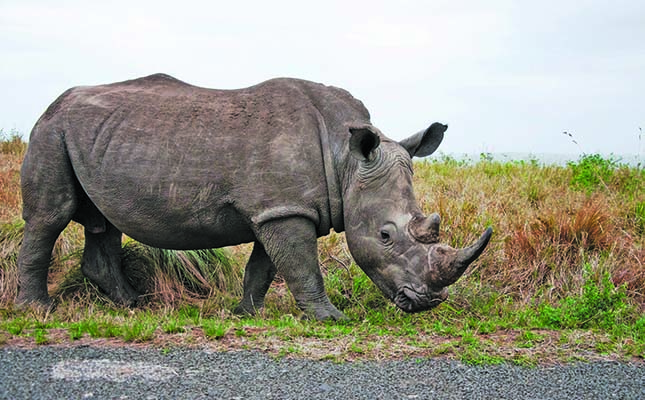
Photo: Peace Parks Foundation
Private rhino owners have expressed disappointment that their conservation efforts receive little recognition or support, despite the fact that more than half of South Africa’s white rhinos and more than 35% of black rhinos are privately owned.
This was according to the chairperson of South Africa’s Private Rhino Owners’ Association (PROA), Pelham Jones, who was responding to the news that 68 fewer rhinos had been poached countrywide between 1 January and 30 June 2019 than in the corresponding period last year.
The total number declined from 386 to 318.
These statistics were released by the Department of Environment, Forestry and Fisheries to coincide with the 9th World Rhino Day held on 22 September.
While Jones welcomed the decline in rhino poaching, he told Farmer’s Weekly that South Africa’s private rhino owners, who collectively own more than 8 000 individual animals, were getting a “raw deal” when it came to their own rhino conservation efforts.
“Unlike the national and provincial rhino reserves, the private sector gets zero financial support from the government, very little donor funding, and does not have access to military helicopters and personnel, and other government-funded resources for anti-poaching and rhino conservation efforts.”
Pelham added that with organisations such as the Convention on International Trade in Endangered Species of Wild Fauna and Flora (CITES) opposing the legal trade in rhino horn and prohibiting the sustainable utilisation of rhinos, South Africa’s private rhino owners had to shoulder much of the burden of the annual R2 billion cost of providing security to protect rhinos in private ownership.
“From 2014 to 2018, over 8 000 rhino were poached in South Africa. The resultant loss of production potential and the devaluation of the national rhino herd is estimated to be in the region of R9,8 billion,” he said.
Pelham added that CITES was unduly influenced by animal rights NGOs, which “without first considering them in detail, shoot down the PROA’s proposals for the sustainable utilisation of our rhinos”.
“It’s a lose-lose situation for rhino conservation and rural job creation”, he said.
Commenting on the rhino poaching statistics, Minster of Environment, Forestry and Fisheries Barbara Creecy, said that “bringing local communities into the mainstream of conservation should continue to be central to our anti-rhino poaching strategy”.
“Although the battle to end poaching is far from over, we’re proud to say that our efforts as a government, as private rhino owners, and as concerned citizens are paying dividends as we continue to implement the integrated strategic approach to the management of rhino,” she said.











